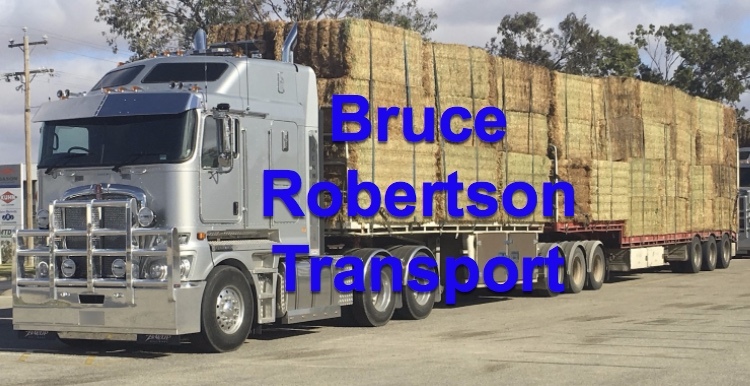Repositioning a commodity - United Wool Company turns over $100 million
- By: "Farm Tender" News
- Ag Tech News
- Jul 10, 2019
- 760 views
- Share

This article is bought to you by Bruce Robertson Transport.
Wool traders Matthew Hand, Nigel Rendell and Andrew Jackson launched their own wool trade and export business, United Wool Company, in 2013. With their new indexed supply concepts and more equitable approach, their business was quickly turning over a cool $100 million per year.
Ad - For all you Hay and Grain Cartage call Bruce Robertson Transport - Australia wide - Ad
Ad - For all you Hay and Grain Cartage call Bruce Robertson Transport - Australia wide - Ad
Getting started
Combining more than 60 years of wool industry experience, the United Wool Company founders saw the need to develop new indexed supply concepts that would ultimately see market exposure reduced for buyers and sellers, but that wasn’t enough. They also wanted to nurture the most suitable pairings of producers and processors for particular needs. According to Managing Director Hand, it was these ethics at the centre of their business practice that enabled United Wool to succeed so quickly.
Repositioning a commodity
As one of Australia's key exports in the 1800s and 1900s, wool was viewed much like other bulk commodities such as cotton and wheat. But, moving into the new millenium we see a very different story, one that started to emerge in the 1980's with the overproduction of wool - around 1 billion kilos per year, according to Hand.
This meant Australia had an enormous stockpile, and when the federal government scrapped the reserve price scheme in 1991, the industry recoiled. An exodus of producers and international merchants followed, bringing the industry to its current position. Hand explains, “Australia produces just 325 million kilos a year, more in line with a market in which wool accounts for just 0.4% of global apparel fibre consumption and 1.4% of the total textile fibre market.”
Ad - For all you Hay and Grain Cartage call Bruce Robertson Transport - Australia wide - Ad
Ad - For all you Hay and Grain Cartage call Bruce Robertson Transport - Australia wide - Ad
While the change in the market may not have directly triggered changes in the way wool is perceived and used, it certainly played a part. Hand likens today’s wool market to those of silk, cashmere and angora rather than the large-volume commodity fibres such as cotton and polyester. He also cites recent innovations in spinning and weaving that give superfine merino an itch-free ‘next-to-skin’ wearability as equally important. “These improvements have driven markets in activewear, athleisure, baby clothes and sleepwear,” he explains. “Traditional products such as classic sweaters or British tweeds are also enjoying a resurgence in demand.”
Innovative approach to contract systems
By 2013, demand for natural fibres was soaring, and after more than two decades of decline, prices were starting to do the same. For the wool industry, these increases meant the traditional fixed contract systems were no longer appropriate.
With the launch of United Wool Company, there was an opportunity to develop its own indexed contract system, whereby the price isn't determined until the wool is ready for shipping, therefore reducing clients' exposure to potentially volatile market movements.
Hand explains, "We run a calculation through a simple matrix that shares market movements in predetermined proportions, enabling the producers, exporters and manufacturers to feel comfortable with limited risk levels."
Strategies for an international market
With a solid working trade-export model and a healthy international market in place, United Wool Company wanted to venture away from the typical Australian model, which today sees the majority of wool exports going to China.
While still active in the region, the company focuses a strong portion of energy into other markets, such as India, Europe and the UK. "Of the European contingent," Hand says, "the Italian and British markets are particularly prominent. This varied focus across all markets is essential for maintaining a robust business."
Ad - For all you Hay and Grain Cartage call Bruce Robertson Transport - Australia wide - Ad
Ad - For all you Hay and Grain Cartage call Bruce Robertson Transport - Australia wide - Ad
Client partnerships
Nurturing partnerships with clients is fundamental to the United Wool Company philosophy. Wanting to make these partnerships work for everyone from the outset, Hand, Rendell and Jackson indentified the need to marry the requirements of processors with the right producer. The company now specialises in sourcing and providing clients with ethically produced wool that is fitting and particular to processor needs.
Continuing to grow
Since 2013, United Wool Company’s phenomenal growth has been built on a real global demand for its specialised services. While Hand acknowledges the company’s growth comes from how well it positions itself globally, he also knows its innovative approach to contract systems is seen as a welcome advance for the industry.
“This is vital and a profound example of how the team at United Wool champions the producer and the processor, and works with its business partners, including NAB, to secure impressive results for everyone, right through to the consumer,” he says.










Share Ag News Via